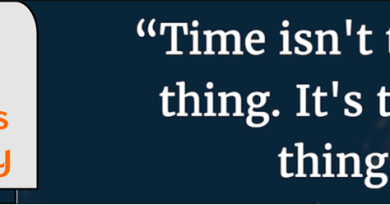Why is Sleep So Important? Research Shows These Results
Sleep is the mother of all rest, healing, peace of mind, and emotional stability. So many times, we have seen what happens with our tempers, the structure of our families, and the effectiveness of our jobs when we (or our loved ones) go without sleep. It’s detrimental, it’s starvation-oriented, and it’s decaying. We all need time to rest and be alone in a quiet, peaceful setting.
Sleep is the be-all, end-all of good health, hygiene, romance, and childcare. And, we’re here to prove it.
Cell Biology and Resurrection
1. First, Our Brains
Your brain is filled with cells which are continually eating and defecating. During sleep, your brain can regenerate these fluid pathways and clean out cellular waste and restore cells to their natural, original state.
If you have trouble thinking, studying, working, or problem-solving, there are incredibly high chances that you are not allowing yourself to have enough sleep. Remember that your brain needs to clean out this cellular waste and replace it with renewed cell activity. This can only happen after a good, long night’s sleep.
2. Then, Our Bodies
The same situation is true for your body. Your cells, organs, bloodstream, and electrolyte balance are all heavily dependent upon the rest and work they get done during your sleep hours, which only happens when you’re asleep, never when you’re awake.
If you think that resting all day will do the job, think again. To stay highly functional, your body needs both high activity and sleep, with moderate activity dispersed in between these two extremes.
3. Fat Gain is Rampant in People Who Don’t Sleep Enough
If you used to get a lot of sleep and be a lot skinnier, chances are the two things are related. Your body is not able to clean out old cells and old cellular waste when you don’t get enough sleep. This prevents proper nutrition uptake, which essentially starves your cells.
Both the clogging of waste and the nutrition starvation lead to massive ballooning of your body fat. Get more sleep and relax, knowing that your body is about to do a 180-degree turn on the fat accumulation.
The Sleep Bank (Credit and Debt, Included)
1. Your Specific Required Number of Hours
Everyone needs a different number of sleep hours every night, but we all need a specific minimum amount. Some of us need ten hours or more, and some of us feel bouncy and perky all day at only seven hours. You will need to determine your minimum requirements in this area and ALWAYS satisfy this requirement, each and every night.
“But, surely, I can just catch up on the weekend!” Not necessarily. Your family, friends, and projects will take up your time on the weekend. Slipping farther and farther behind is easy.
In any case, you will need an actively rested body throughout the week if you want to deliver high-quality results every single weekday. You can’t just go to work and force your way through your job. Willpower alone will only get you so far. It is not a renewable resource.
You will have to pay attention to your energy levels, document any strong fluctuations in your energy throughout your workday, and then notice if food, sunshine, fresh air, or horizontal rest work for you the next day. Try out only one thing at a time for a whole week, so that you can get a good read on the situation before making a long-term decision in the way you go about your work.
All of this experimentation is not only necessary, but the rewards pay off in large amounts, in the end. Imagine feeling good, amazingly strong, and “in your flow state” all day long, going home, spending quality and enjoyable time with your family, and then going to bed for a full night’s sleep. Imagine doing that. Every. Single. Day.
Wouldn’t that be worth the extra effort to determine your minimum hours of sleep needed and how you feel throughout the day with different resources in your corner?
 2. The Sleep Debt You Accumulate
2. The Sleep Debt You Accumulate
If you don’t get the minimum requirement of hours for your personal needs, you will accumulate a sleep debt. For example, if you have one less hour than your minimum sleep requirements, you will need to add an hour of sleep onto the next night.
An accumulation of sleep debt over time leads to needing to sleep long weekends, overall depression, loss of hope and optimism, and significant depletions in your creative thinking.
3. Planning with No Alarm Clock
If you would like to always have enough sleep without your alarm clock waking you up, then plan on going to bed in time to wake up with your minimum number of sleep hours filled before your alarm clock rings.
First, make sure that your sleep debt has been paid off. Spend all weekend exercising and sleeping in without any regard to the time.
Second, still set your alarm clock (for work, just in case) but go to bed in time to have enough sleep before your alarm goes off. This will ensure that you get your minimum requirement of sleep without interruption from your morning jingle.
Has Your Sleep Changed since You Got Older? “Take time to calm down before you turn out the lights. Turn off your electronic devices and TV an hour before bed. You can read a book, listen to music — whatever helps you unwind.” –WebMD, “Getting Better Sleep as You Get Older”










